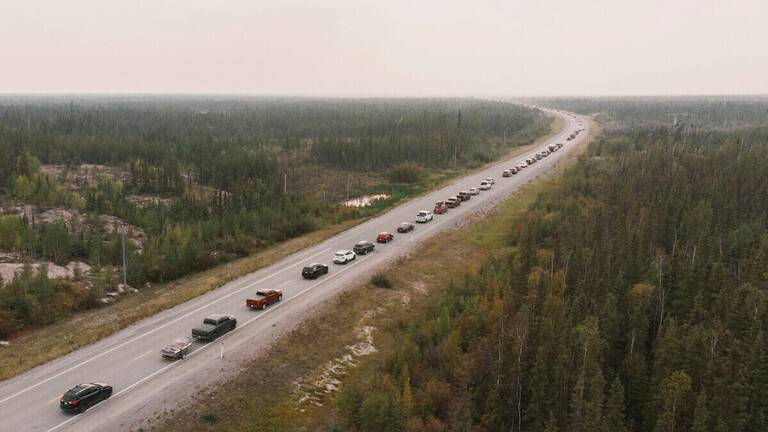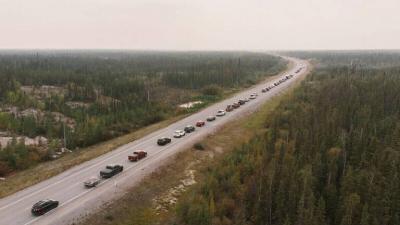Thousands of residents in British Columbia, Canada, prepared for evacuation orders on Saturday as the rapid spread of wildfires forced provincial authorities to declare a state of emergency and partially close sections of a major highway connecting the Pacific coast to other parts of Western Canada. The region experienced strong winds and dry thunderstorms over the past 36 hours due to the interaction of a cold air mass with hot summer air, exacerbating existing wildfires and igniting new ones.
A raging wildfire in southern British Columbia escalated by Friday evening, prompting the evacuation of over 2,400 properties. The fire primarily affected the area around Kelowna, a city located approximately 300 kilometers east of Vancouver, with a population of around 150,000. As conditions continued to deteriorate rapidly into Friday evening, the province's Premier, Daniel Eby, declared a provincial state of emergency to allow him to temporarily assume official powers to address fire-related risks.
"This is a historic wildfire season in British Columbia," Eby stated during a briefing. He added, "The declaration of a state of emergency makes residents across the province aware of the seriousness of the situation." Eby noted, "The state of emergency provides us with various legal tools to issue specific orders and ensure resource availability."
Authorities closed the Trans-Canada Highway near the town of Chase, located 400 kilometers northeast of Vancouver, and between Hope, 150 kilometers east of Vancouver, and Layton. However, the provincial transportation department announced the existence of traffic detours. The Trans-Canada Highway is the main artery between eastern and western Canada, used by thousands of drivers and freight transport vehicles heading to the country's busiest port in Vancouver.
Additionally, the utility company reported power outages affecting about 5,000 users in British Columbia due to the fires.
**"Ghost Town"**
The capital of the Northwest Territories in Canada has turned into a "ghost town" after being abandoned by its over 20,000 residents due to a devastating fire. Officials in the Northwest Territories reported on Friday evening that approximately 19,000 people evacuated Yellowknife in less than 48 hours, with around 15,000 leaving in convoys and 3,800 departing on emergency flights.
Yellowknife's Mayor, Rebecca Alty, described the situation as "another marathon race. It’s exhausting, and unfortunately, it’s not over yet." The region's Minister of Environment and Climate Change, Shane Thompson, stated that the wildfires remain critical and that non-emergency personnel who stayed are putting themselves and others at risk.
Streets were nearly empty, and businesses were closed. Kiron Teastart, who was going door-to-door checking on people, remarked, “It’s a ghost town.” A grocery store and a pharmacy remained open yesterday but are expected to close soon, and the last functioning gas station was noted.
Wildfire information officer Mike Westwick reported that cooler temperatures and increased humidity aided firefighters in preventing wildfires on Friday, keeping them 15 kilometers northwest of the city’s suburbs. More than 1,000 wildfires are currently active across Canada, with about 230 in the Northwest Territories, highlighting the extreme heat experienced in the northern hemisphere.
Canada has been experiencing massive wildfires this summer, with flames spreading quickly across the country and consuming large areas, forcing tens of thousands to flee their homes.




